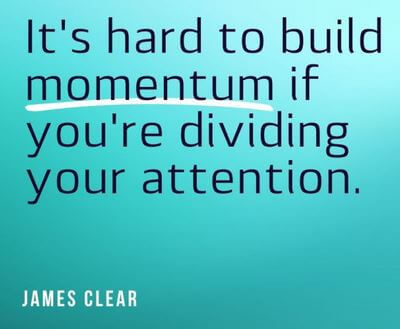 Do or Do Not: What the Action Takers of the World Know is NOT a Secret
Do or Do Not: What the Action Takers of the World Know is NOT a Secret
I write in the still of the night. Although I will never identify as a “night owl,” I know that when my brain shares a story idea it’s best to get it written down and not expect it to still be fresh in my mind in the morning. I also do this for product and course ideas. Taking massive action at the most inopportune times has given me a lucrative, time freedom lifestyle. It’s like we learned from Yoda – “Do or do not; there is no try.” But there’s more, much more to this story…
Over the past few days, I’ve been asking my community (that’s YOU!) to reach out to me with a question or two about affiliate marketing. I said that if I could get 12 questions, I would give everyone on my list two full years of free access to one of my most popular affiliate marketing training courses.
I did receive a handful of questions, but I still don’t have the dozen I’m looking for. Some people wrote to me with excuses as to why they aren’t already recommending something every day – even a free Amazon book or my complimentary “Action Habits Challenge” training through their affiliate link. Herein is where the great divide exists…
Taking action requires a leap of faith, whether you’re buying a lottery ticket, purchasing a product or course, or writing a blog post. There are no guarantees that what you do will make a difference, yet some people are anxious to take that leap and do the thing they thought they could not do, while others won’t ever begin, or if they do they won’t be consistent. Taking the “Do or Do Not” strategy to heart will make all the difference. I’ll share one story of how this has affected me most recently…
Two years ago I committed to writing scripts and screenplays for film and television. I purchased some books on screenwriting, both in print and on Audible, signed up for a few email lists on this topic, and joined an online group that is led by someone quite well known for his writing. I write every day and complete about 10% of the scripts I start. It’s slow going, but I’m in for the long haul and learning so much in the process. We share our writing as an assignment every few weeks to learn more from each other.
There are people in this group whose writing dances circles around mine in terms of how they craft and unfold their stories. Yet, when something changes in their personal life or in the bigger scheme of things, some of them drop out. Their excuses over the past two months have included the writer’s strike, the looming recession, artificial intelligence, illness of a friend or family member, the actor’s strike, and climate change. I didn’t ask how the weather would have an impact on writing. The rest of us just keep on writing, as though nothing else in the world matters.
This may sound dramatic the way I’m sharing with you here. It may seem selfish to want to accomplish something for self-satisfaction and personal growth that may not ever benefit anyone around us. But I reframed my thinking on this topic and honestly believe that we must go after what we want and deserve and what makes our heart sing. If I was going to write, I had to write each day and work up to my full potential. The philosophy of Do or Do Not; there is no Try continues to work for me.
You are reading a post from my third blog, Monday Morning Mellow, that I launched in July of 2019. During these past four years I have published a new article every Monday for two hundred twelve consecutive weeks, as of this writing. Each post averages about 1200 words, meaning that I have now published over a quarter of a million words on this site alone. In November of 2022 I used many of these articles to publish a book of essays – Essays at the Intersection of Hope and Synchronicity … But that book is about 88K words, meaning that I could publish two more books based on my posts to date.
Why am I sharing this story and these statistics with you? I’m making the point that once I start something I stay the course and see where the journey will take me.
Instead of getting bored after a specific amount of time or number of posts, I kept going. This is the exact opposite of how I approached almost everything in my life until I came online in 2006. Why the abrupt 180 degree shift?
Because I wanted more… More time, more money, more of the feeling you get when you’ve raised the bar and committed to having a stronger work ethic.
What the action takers in this world know is not a secret. I came online in 2006 with more reasons and excuses than anyone I knew, yet I set them all aside and got to work. It was messy at first, like anything we do for the first time. But once something pays off in even a small way, we’re so glad we finally took action when we did. I would love to know your thoughts on what I’m sharing with you here.
James Clear tells us that “It’s hard to build momentum if you’re dividing your attention.” You must focus on what you wish to achieve if you are to have any chance of creating a lifestyle that most people only dream of living.
Focus on Both Short-Term and Long-Term Goals
Without goals, you can end up wasting a lot of time in your business. Having goals not only gives you the drive to achieve what you want, but they help you stay focused on the end result.
You need both short and long-term goals. These work together to help guide you in the right direction. The reason that you need both is because long term goals are like a staircase, while short term goals are the individual steps that build it.
You can’t reach long term goals without first achieving some of your smaller goals. For example, if your goal is to have a successful business, you have to achieve things like setting up your website, or getting your content or products ready.
You have to create a buzz for your business or establish social media so that you can connect with potential customers. These are short term goals that will lead you to your long-term ones.
They help show you what to do next. By focusing on the short-term goals, you have a map to follow so that you don’t veer off course. Every time you complete a task, this helps keep you motivated so that you continue to drive forward toward the finish line.
Long term goals are what you want to see happen as a result of the hard work that you put in. These goals act as a finish line and are needed to not only help you build a business, but to help you improve your skills and knowledge, too.
These goals are your guide in that when they’re broken down, you know which short term goals you must have in place first. For example, if you want to create a business teaching people about fitness, you first must have the knowledge in addition to the desire to do so.
This may mean that some of your short-term goals would be to take fitness training courses or to take courses on nutrition. Each short-term goal needs to be a necessary part of your long-term goal.
You want these steps to count so that you don’t get sidetracked. If you wanted to start an online gardening business, you’d want to learn about horticulture, but it would be a waste of time to study anything unrelated to gardening.
If you planned to create your own website and run it in the startup phase, then it would be in line with your long-term goal to study how to do that. Each time you achieve a short-term goal, you take a step forward, but these goals must be defined.
In the beginning, you need to write down what your long-term goals are. Then, taking each of these goals, break them down into your short-term goals or the action steps that you need to take in order to achieve the long-term ones.
What many people find helpful is to decide what the long-term goals are, then break each of the short-term goals down by weeks, months and years. Write down what has to happen weekly, monthly or yearly in order to reach your end goal.
Genius Thinking… and Acting
I’ve always been intrigued by the concept of genius thinking, and even have a product I created that is based on the “Genius Hour” that was begun at Google’s main headquarters years ago. Also called 20% Time or Passion Projects, Genius Hour for their employees allowed them to use 20% of their work week to explore projects of their choosing, as long as it benefited the company. Gmail, Adsense, Google News, and many other innovations were created as a result of this self-directed research time.
It turns out that stretching your thinking patterns so that you’re more flexible and creative is much better than having anyone tell you what to think. As I mentor people to success with an online business, the focus is on strategies rather than tactics as a way to bring their unique, genius thinking to the surface so it can manifest as the business they want and deserve. If you have questions about this, or anything else please reach out to me and I will personally respond back to you. Know that the “Do or Do Not” strategy is a solid one, no matter where you are right now in your life’s journey.
“The value in looking inward and growing spiritually, investing in yourself, as you virtually travel the path to online entrepreneurship will give you the highest return you could ever hope for or imagine.” ~ Connie Ragen Green
I’m Connie Ragen Green – bestselling author, marketing strategist, and online entrepreneur – and I’m living a life I couldn’t have ever dreamed was possible. Come along with me, if you will and we will explore what a lifestyle by design would look like for you.

Leave a Reply